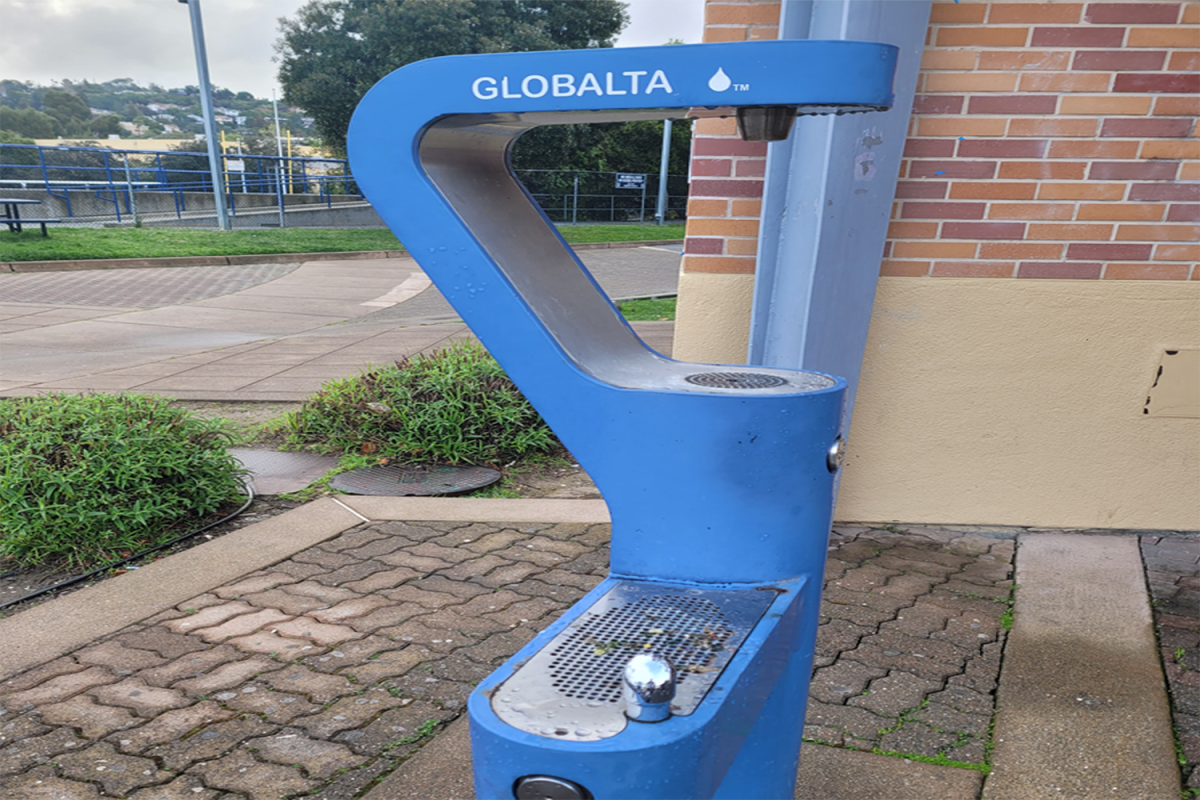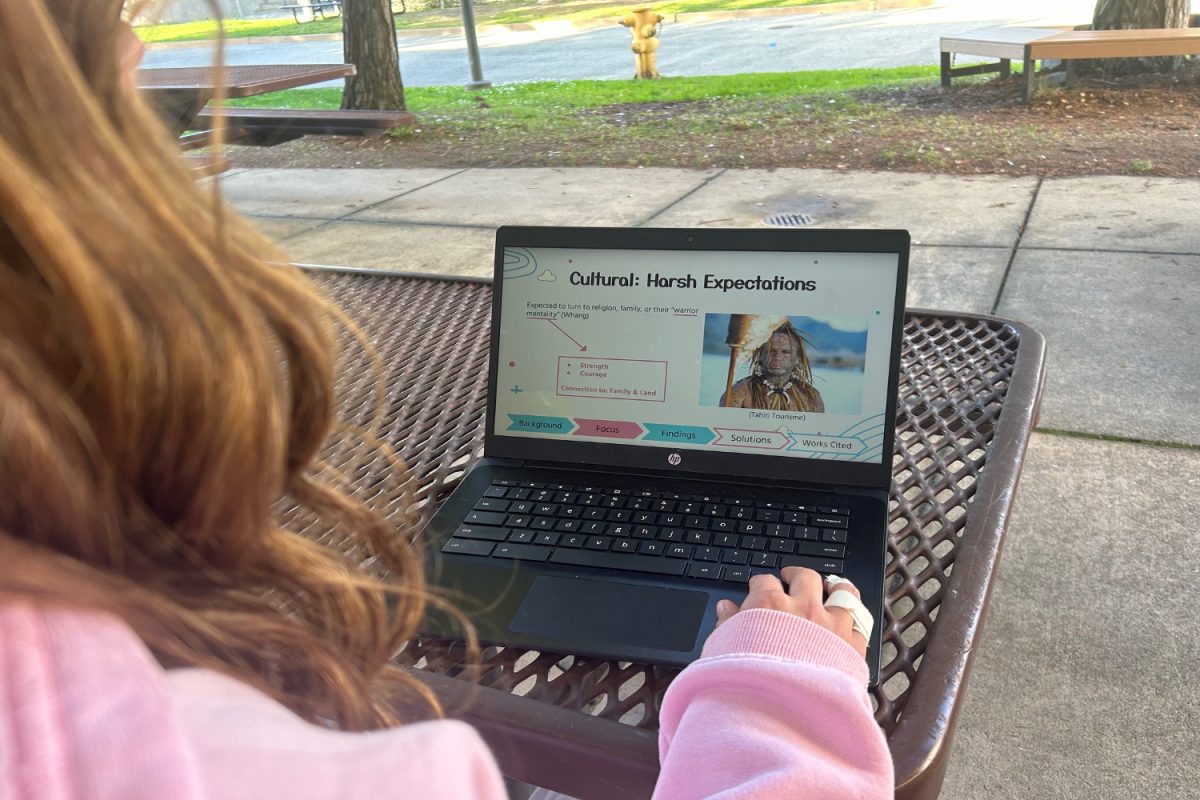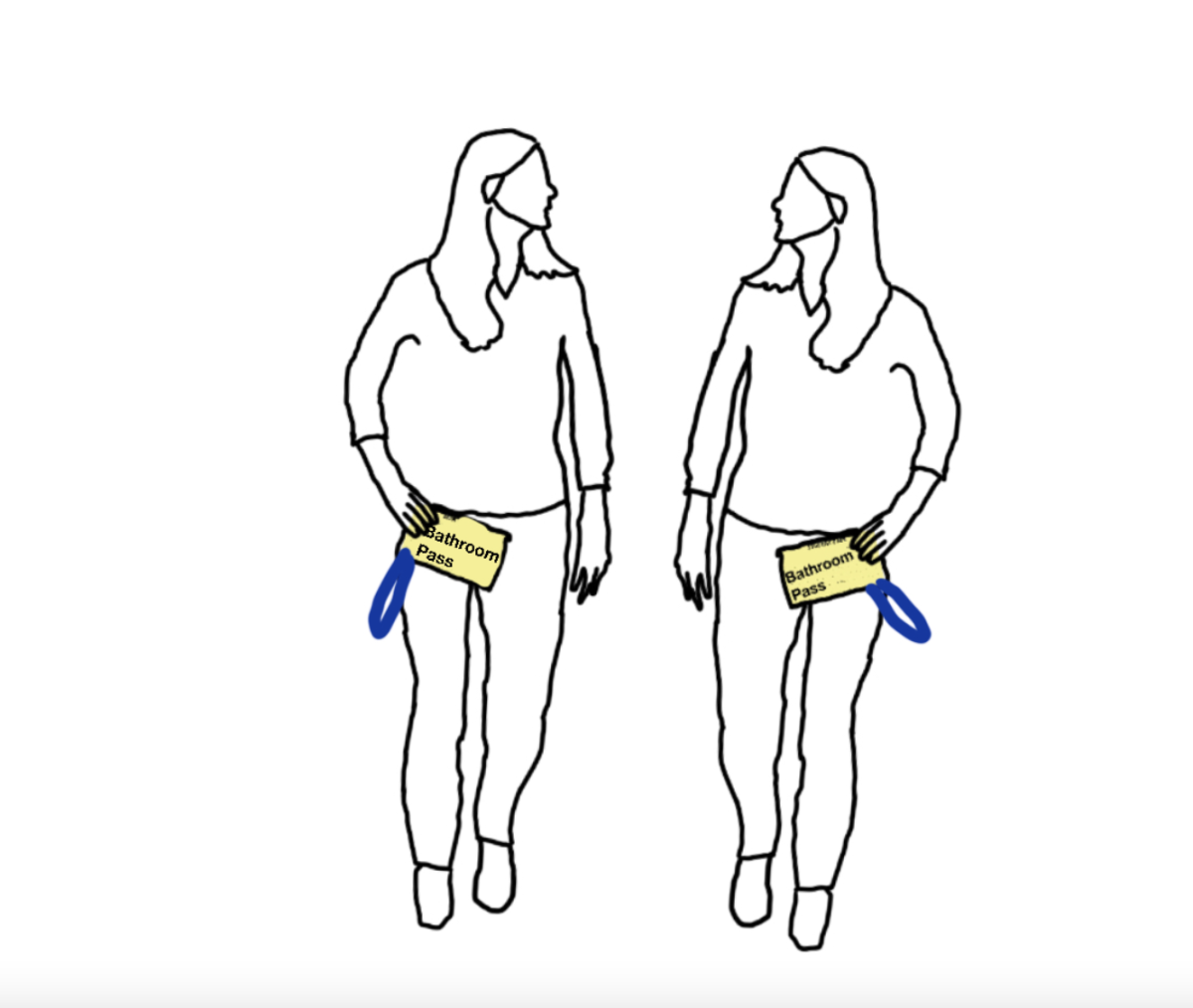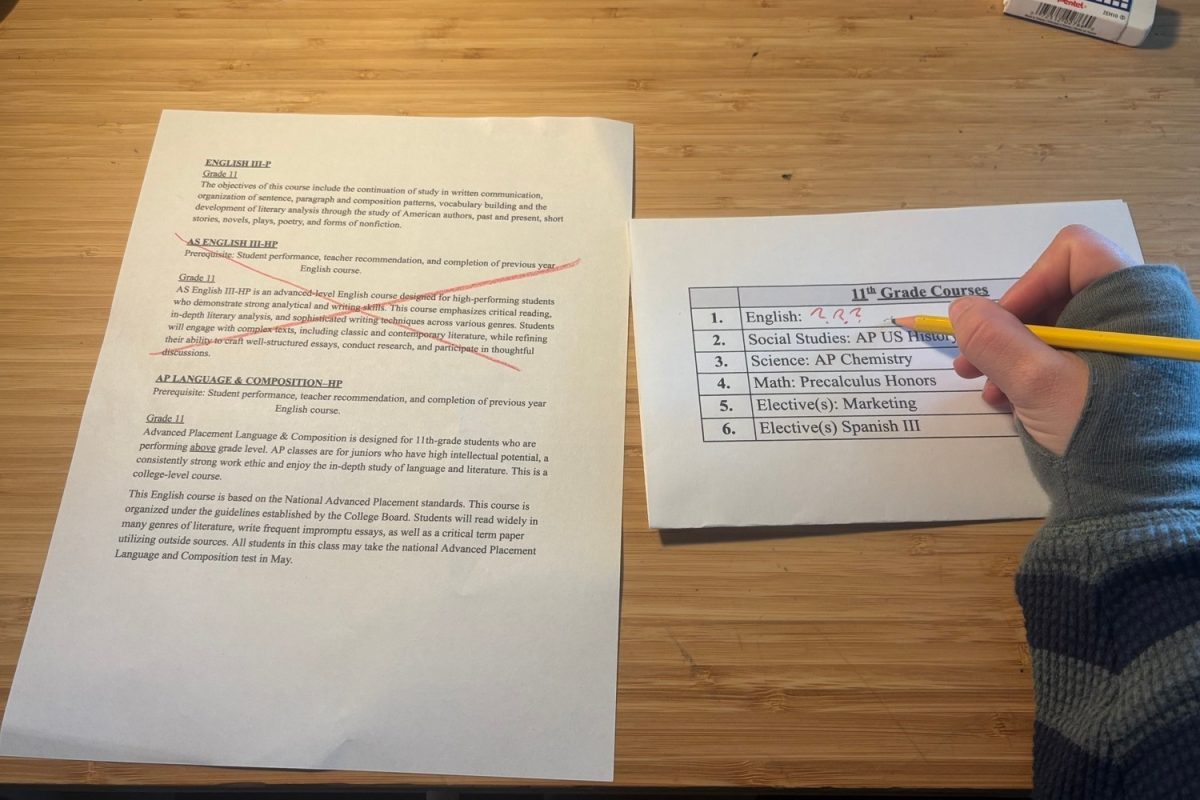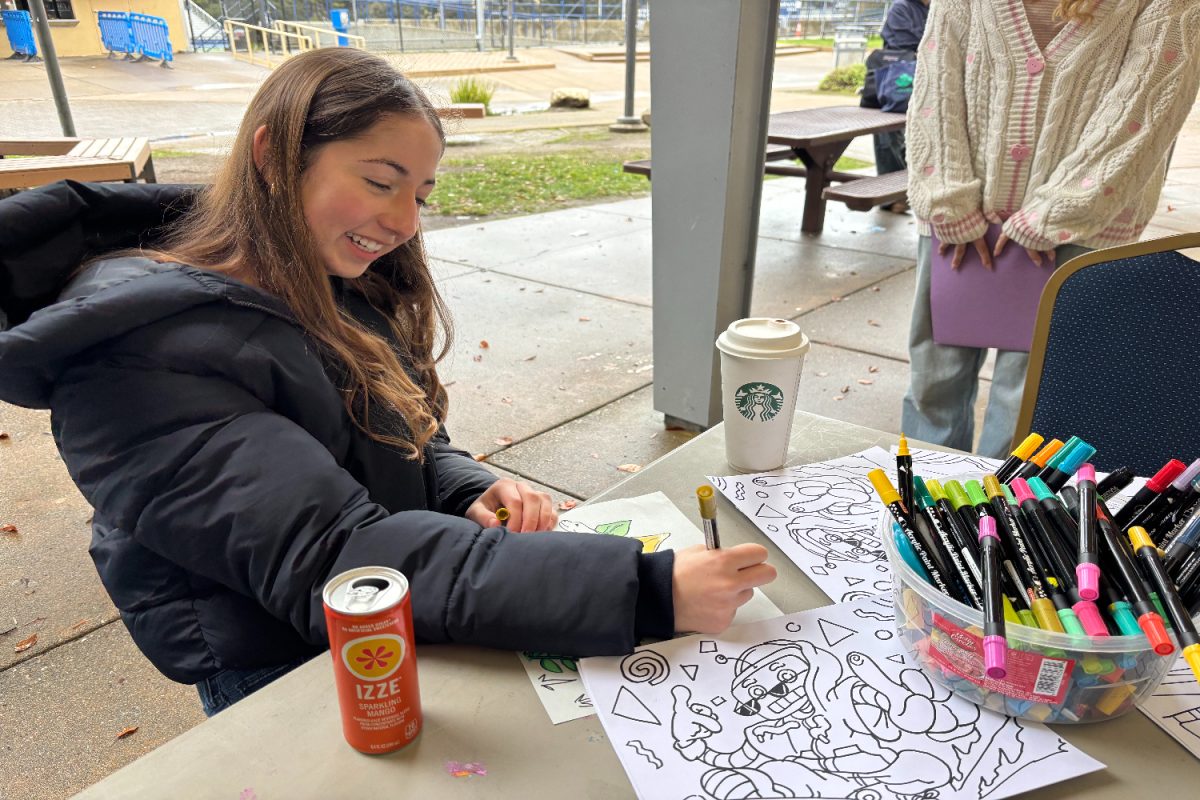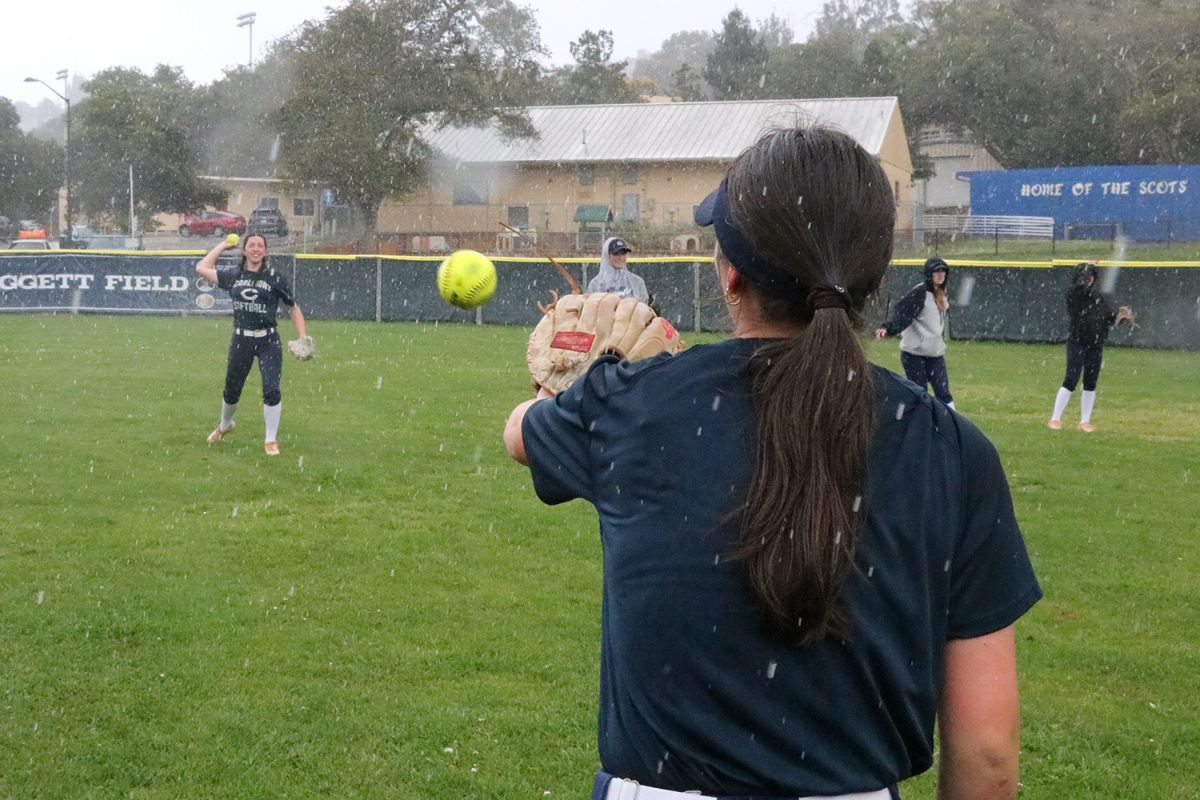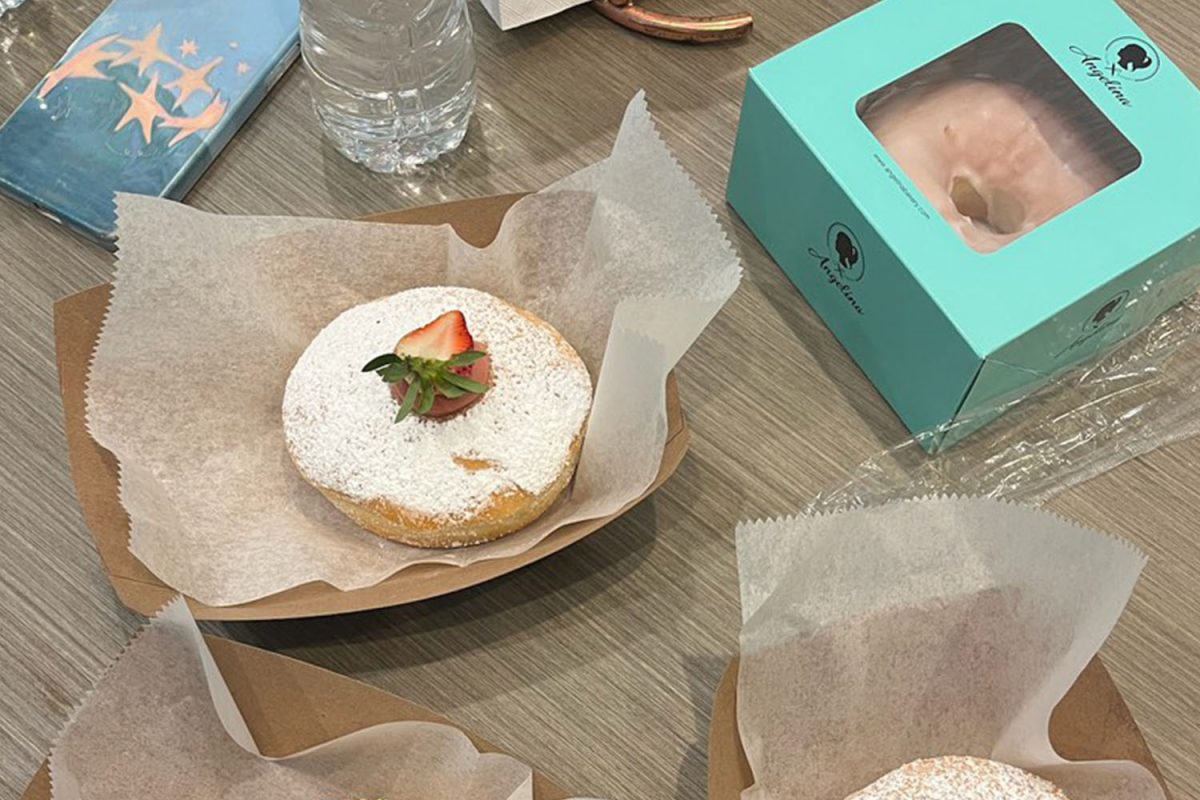For juniors, sophomores, and freshmen, the task of choosing classes for next year has come around yet again.
Sometimes choosing a class can be daunting, as the GPA boost that five-point classes offer often come with a huge workload.
Many students look to others who have already taken the class for advice. However, as everyone has a different learning style, experiences in these classes can vary greatly.
One of the most well-known classes offered for sophomores is Advanced Placement (AP) European History, also referred to as AP Euro.
“You look at the homework sheet for AP Euro and it says five hours per week, but for me, it is longer than that. I have to study more and work harder to get a better grade,” said Meagan Freeman, a sophomore.
Freeman acknowledged that the workload of AP European History is a lot and said that she spends a lot of time studying and completing outlines.
“At first you are really overwhelmed but you get used to the rigorous hours and workload,” Freeman said.
Freeman also recommended getting an AP European History Crash Course book to help study for exams and quizzes.
Nicole Klein, a sophomore, said that she recommends AP European History to other students, especially if history is a subject they enjoy. She also compared it to other classes, like math, which require one to be able to contribute a higher level of understanding of the material.
“It’s more so just knowing the facts. So it’s not mentally challenging, it’s more being able to comprehend a textbook and retain the facts, and I feel like everyone can do that if they put in the work,” Klein said.
Meanwhile, other students feel that AP European History is not worth the time that is put into studying.
Sophomore Ashlyn Kwan said, “I wouldn’t recommend AP Euro. I feel like it is a lot more work than most kids have to do, and if you are going to get a B, there is no purpose in doing all that work for a 4.0 that you can get easier in a regular history class.”
After sophomores finish AP European History, they are given the choice to take AP U.S. History (APUSH).
Samantha Phan, a junior, said, “APUSH is so much easier, especially if you have already taken AP Euro. I try to do a lot of it on the weekends so I don’t have a lot to do during the week.”
However, Kevin Moy, also a junior, disagrees.
“You have to know the details in APUSH which makes it much harder,” Moy said. “Also, APUSH is more boring than AP Euro.”
Though APUSH did not captivate Moy’s interest, he still recommends taking the class.
“The structure varies, but APUSH is very similar [to AP European History]. It is just that the class is not as interesting,” Moy said.
Moy is also taking AP Chemistry which he said he enjoys.
“If you think you can manage the workload of chemistry and the rigor of it, it’s definitely a fun and rewarding class. You learn a lot,” Moy said.
He also said that he noticed a significant increase in difficulty when transitioning from Chemistry to AP Chemistry.
“It’s not that the math is hard, it’s that the conceptual stuff is hard,” Moy said. “The labs are hard because they are very technical.”
In addition to APUSH and AP Chemistry, Moy is taking BC Calculus. He recommends taking BC Calculus, especially if one has already taken Precalculus Honors.
Phan gives similar advice for choosing between taking Precalculus and Precalculus Honors.
Last year Phan took Algebra II Trig and chose to take Precalculus this year.
“If you have taken Algebra II Trig, definitely go advanced because I have learned nothing new in Precalculus so far,” Phan said.
Moy took three AP classes this year, but he still feels that he could have taken more. He said that he felt that four AP classes would have been manageable.
However, taking multiple AP classes does not appeal to some seniors.
“Only take APs if you are interested in them. Don’t take a bunch of APs because you are going to get really lazy second semester [of senior year]. It’s not a joke,” said Akiko Balitactac, a senior.
And while some seniors recognize that senioritis may kick in during their final semester in high school, they still recognize the importance of taking high-level classes.
“Colleges only care about high GPAs, so they don’t care if you get an A in a four-point class, just if you get a higher GPA. Sadly, it’s true,” said Charles Hong, a senior.
August McGreivy, also a senior, said that students should absolutely take an AP class even if they are not extremely interested in the subject.
“This is a game. School is a game. You have to play the game and get good grades,” McGreivy said.
Other students give advice not about specific classes, but rather tips for succeeding in high school.
Ava Bruckner-Kockel, a junior, said, “Make connections with your teachers because they are the ones who will write you your letters of recommendation.”
Gaby Goldman, a junior, advises students to talk to their teachers and get a jumpstart on any college or SAT prep.
And Nolan Scheetz, a freshman, said, “Do what you want to do, and make sure you pass all of your requirements as early as you can.”
As counselor meetings creep closer, students lose time to decide what classes to take. Asking peers for recommendations can help students form an idea of their schedule for next year.
“I think getting different perspectives is important because everyone is going to have a different experience. My teacher, the teaching style, could be completely different from another teacher,” Freeman said.


